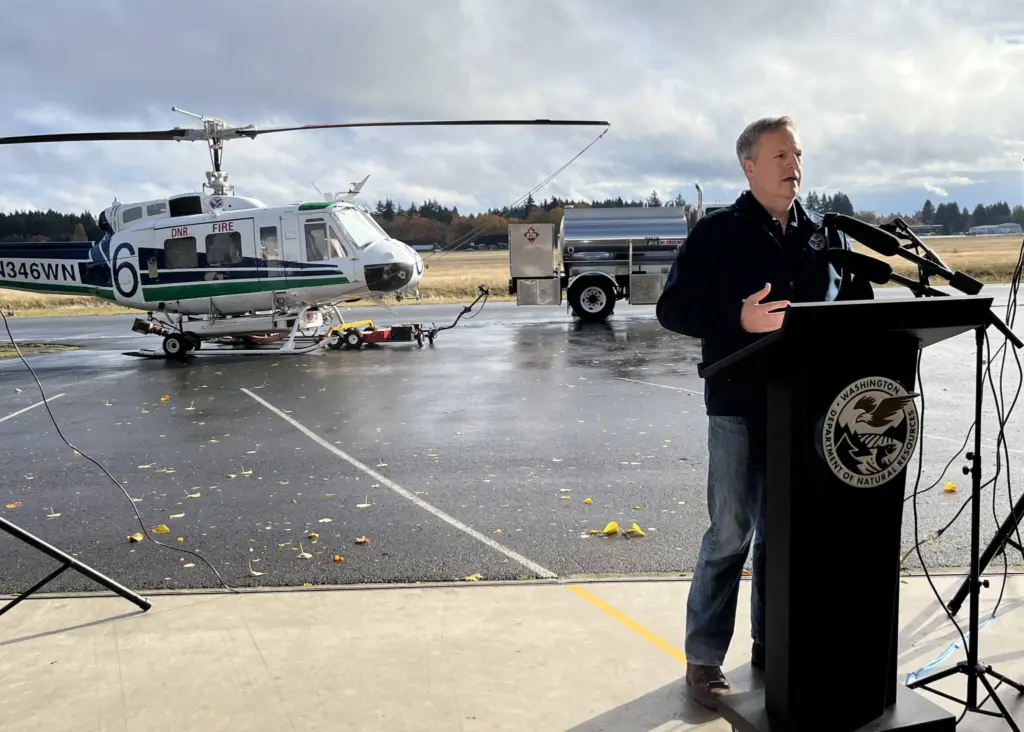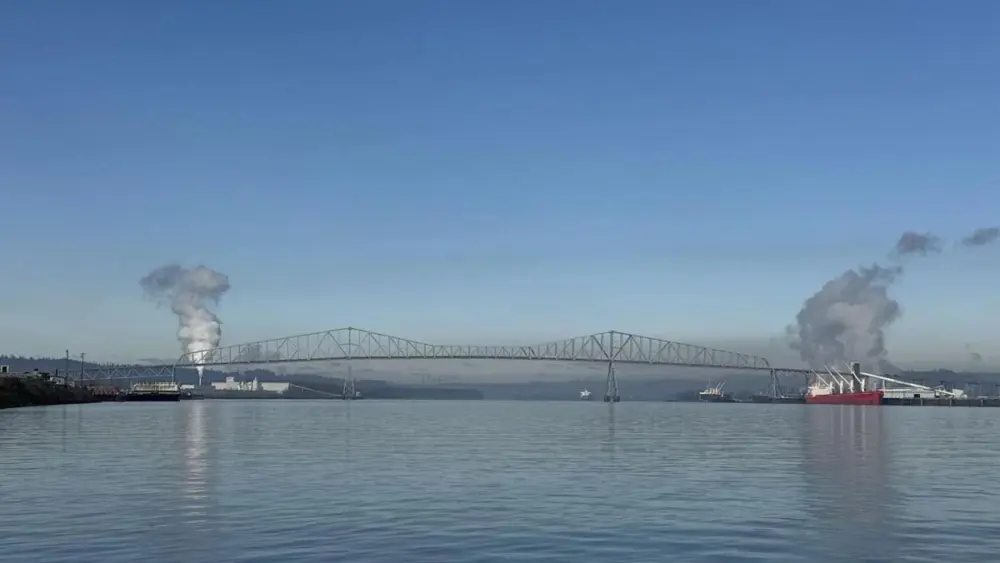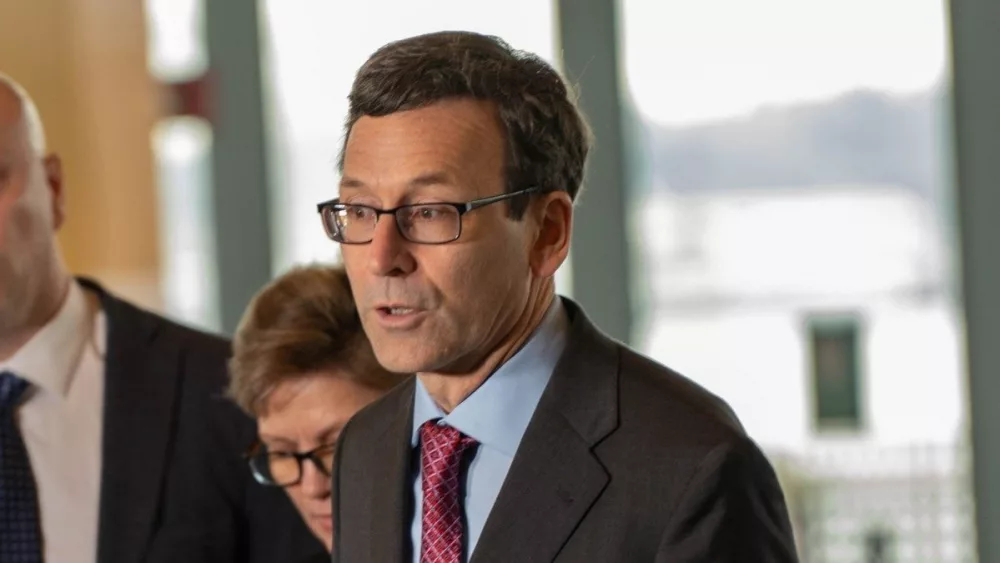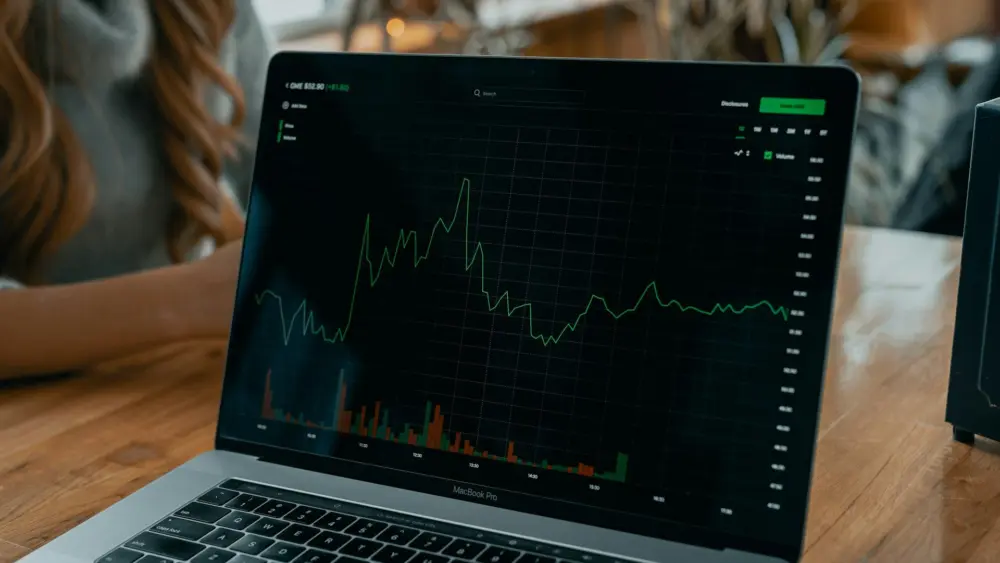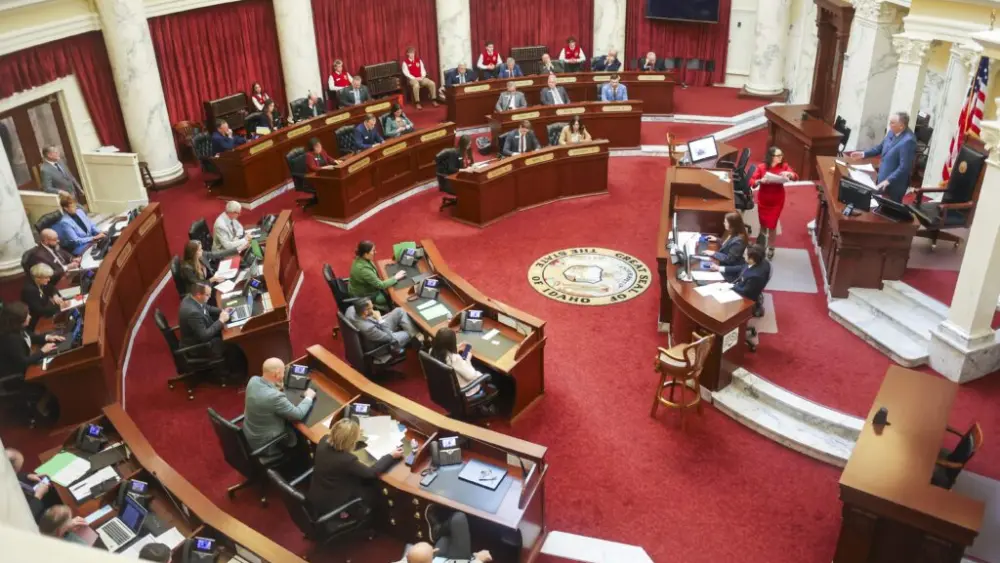OLYMPIA, WA – Washington’s lands commissioner, Dave Upthegrove, is on a mission to secure $60 million of additional wildfire funding in next year’s legislative session, despite a tightening budget outlook.
On Monday, he and a leading Democratic House lawmaker indicated that they want to tap revenue from the state’s cap-and-trade program for at least some of that money. The maneuver would mean turning to a steady-flowing stream of cash outside the state’s squeezed operating budget.
“Climate Commitment Act dollars are going to be on the table,” said state Rep. Larry Springer, D-Kirkland, who is deputy House majority leader.
At issue is funding provided under a 2021 law known as House Bill 1168, which passed with broad bipartisan support. With that legislation, lawmakers committed to direct $500 million over eight years to wildfire programs. Springer was a lead sponsor.
The HB 1168 funding supports three general areas: initial attacks on wildfires to keep them from growing into huge blazes; forest health measures, like prescribed burns and thinning; and community resilience initiatives focused on making buildings and property less fire-prone.
Legislators largely kept up the funding, with $115 million in the 2023-25 budget and $130 million in the 2021-23 cycle. This year, confronted with a budget deficit, they delivered just $60 million.
The $60 million Upthegrove is now angling for would bring funding in the current two-year budget up to $120 million, on par with the 2021 framework.
But the budget pressures have not subsided, with revenue trailing expectations and lawmakers and the governor preparing for another session rife with difficult budget talks.
It’s against this backdrop that Upthegrove and Springer say that they’ll press for the Climate Commitment Act dollars.
“Although the general fund has a large shortfall, the Climate Commitment Act funding has some capacity,” Upthegrove said.
And spending on proactive wildfire programs, he said, can save money in the long run.
“If we can prevent or reduce the size of one or two large fires, this will more than pay for itself,” Upthegrove added.
Under the Climate Commitment Act, businesses that produce large amounts of air pollution must buy allowances at state-run auctions to compensate for their emissions. The auctions have raised more than $3 billion since they began in early 2023.
Money the law generates is restricted to certain kinds of spending, related to reducing air pollution and environmental projects. There’s a special emphasis under the law on improving air quality and public health in disadvantaged parts of the state.
Reducing wildfire risk and improving forest health are among the eligible uses for the funding.
Before this year, no funding for the HB 1168 fire programs came from the Climate Commitment Act. In the current budget, $20 million of the $60 million in wildfire spending did.
Springer said it’s too early to say how much of the $60 million he and Upthegrove are now pushing for could come from the climate program.
“That’s going to be through negotiations,” he said.
He makes a case that there’s a clear connection between the climate program and wildfires.
“In terms of the carbon that’s thrown into the air by a wildfire is astronomical,” Springer said. “So there’s the nexus with the Climate Commitment Act that I hope my colleagues will see.”
Washington State Standard is part of States Newsroom, a nonprofit news network supported by grants and a coalition of donors as a 501c(3) public charity. Washington State Standard maintains editorial independence. Contact Editor Bill Lucia for questions: info@washingtonstatestandard.com.

